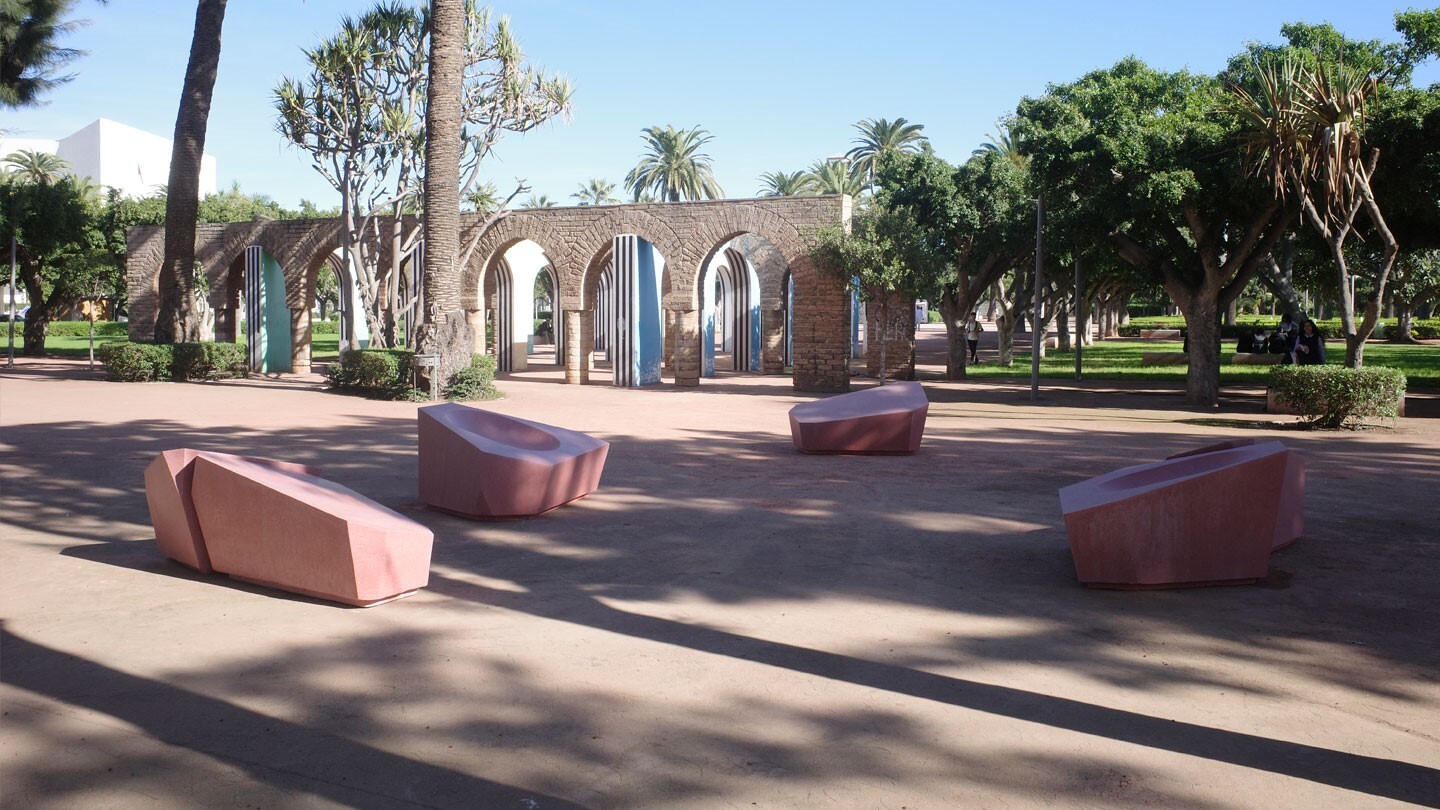February 16–May 12, 2024
With contributions by: Bik Van der Pol, Céline Condorelli, Fatima-Zahra Lakrissa and Gilles Aubry, Manuel Raeder, Marion von Osten, Peter Spillmann, Abdeslam Ziou Ziou with Fatine Arafati, Sophia Attigui, Grocco-Trick 54, and Nassim Azarzar
School of Casablanca is a collaborative initiative of ifa Gallery Berlin, the KW Institute for Contemporary Art (Berlin), and ThinkArt (Casablanca) with support from Sharjah Art Foundation, Goethe-Institut Morocco, and Zamân Books & Curating.
Launched in 2020, the project draws on the legacy of the Casablanca Art School and its innovative pedagogical methods, modernist aesthetics, and exhibition strategies during the 1960s and highlights a pivotal moment in Moroccan art history following the country’s 1956 independence.
During this period, Casablanca developed a completely fresh self-image and radically broke with tradition. The Casablanca Art School played a seminal role in these developments with its modern approaches, artistic ideas, and pedagogical methods. Partly drawing inspiration from Walter Gropius’s Bauhaus manifesto (1919), it grew into a groundbreaking forum.
School of Casablanca revisits and reinterprets the ideas, traditions, and interrogations of the Casablanca Art School in light of contemporary thought. In doing so, it draws from the spirit of experimentation, discourse, self-organization, and community building. In the twenty-first century, we are again grappling with questions about how to re-envision the role and significance of art and design in society. What can we learn from this specific social and cultural project? What institutions, schools of art and design, practices, and forms of learning do we need today? How do we produce knowledge and how do we share it? What does “collective learning process” mean?
School of Casablanca has intensively worked on these questions to create a dialogical, multidisciplinary, and transhistorical narrative for future reflection, study, and action. The participants further tackled underlying ongoing questions like: Which multiple modernities arose from this transcultural exchange? How do we deal with the power relations present in cultural appropriation? What have been the blind spots of this school? Do hierarchies in creative disciplines still exist? What meanings do we create today with new contextualizations?
The project began in 2020 with a residency program. Over the past years, the invited participants to School of Casablanca, ranging from artists, designers, and curators to independent researchers, conducted research and fieldwork within the city of Casablanca. In the process, Bik Van der Pol (Rotterdam), Céline Condorelli (London), Fatima-Zahra Lakrissa (Rabat), Manuel Raeder (Berlin), the late Marion von Osten (Berlin), and Abdeslam Ziou Ziou (Casablanca) have reconsidered the social function and visibility of art in the public sphere and have disseminated their cultural practices in the cityscape through workshops, public discussions, urban walks, and interventions. Peter Spillmann (Berlin) continues the legacy of Marion von Osten’s groundbreaking research-based exhibition practice. His interests revolve around collective ways of working and self-organized forms of knowledge production and mediation.
This process culminated in November 2023 with an exhibition at five locations in Casablanca. With the eponymous exhibition School of Casablanca at ifa Gallery Berlin, the concept and project have been mirrored back to Berlin. The exhibition creates a dialogue between the artworks commissioned by the collaborative partners and the extensively researched archival materials, taking action in the present moment while reflecting on the past.
Curators Salma Lahlou, independent curator and founder of ThinkArt, Casablanca; Krist Gruijthuijsen, director of the KW Institute for Contemporary Art, Berlin and Inka Gressel, co-director of ifa Gallery Berlin
Artists’ talk: Friday, February 16, 2024, 4pm. With Bik Van der Pol, Céline Condorelli, Fatima-Zahra Lakrissa, Manuel Raeder, Peter Spillmann, Sophia Attigui & Adil Ashimdat, Krist Gruijthuijsen, and Salma Lahlou.

